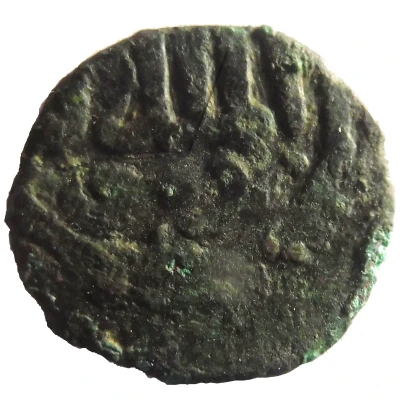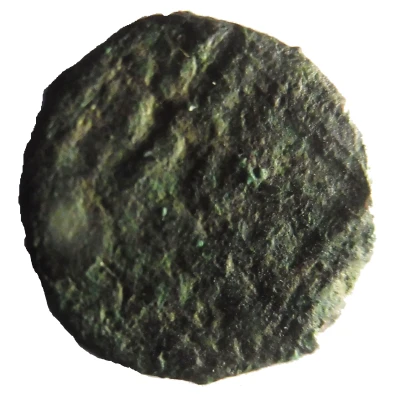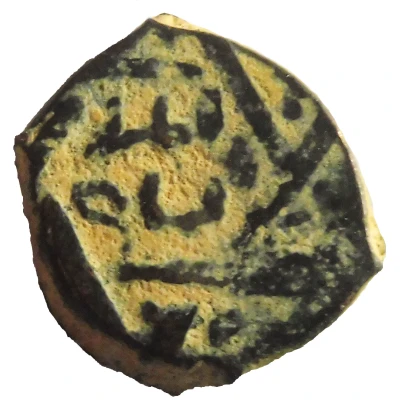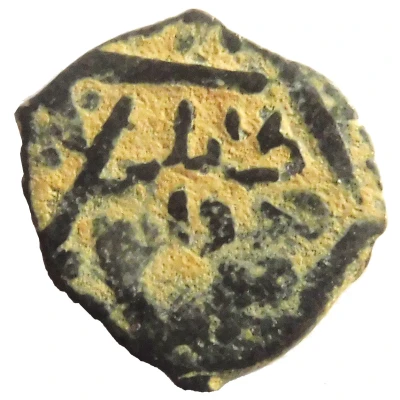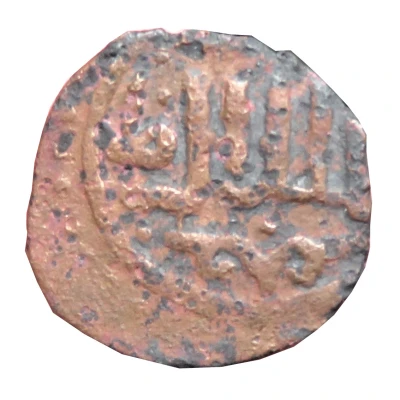
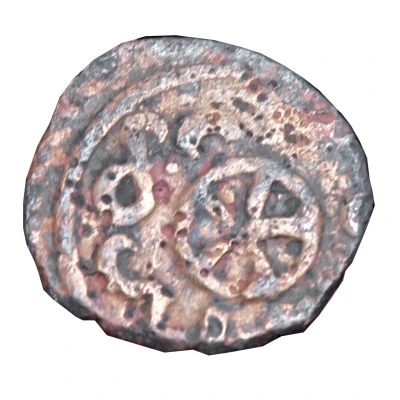

© Bitteswell
Fals - al-Nasir Muhammad Five-petaled rosette type; Damascus
730 (1330) year| Copper | 2.24 g | 18 mm |
| Issuer | Mamluk Sultanate |
|---|---|
| Sultan | Muhammad I (1293-1294, 1299-1309, 1310-1341) |
| Type | Standard circulation coin |
| Year | 730 (1330) |
| Calendar | Islamic (Hijri) |
| Value | 1 Fals (1⁄60) |
| Currency | Dinar (1250-1517) |
| Composition | Copper |
| Weight | 2.24 g |
| Diameter | 18 mm |
| Shape | Round (irregular) |
| Technique | Hammered |
| Orientation | Medal alignment ↑↑ |
| Demonetized | Yes |
| Updated | 2024-10-05 |
| Numista | N#191087 |
|---|---|
| Rarity index | 90% |
Reverse
Clockwise marginal legend.Center: round shield, in which concave, five-petaled rosette.
Script: Arabic
Lettering: ضرب بدمشق سنة ثلثين
Translation: Struck in Damascus, year thirty
Comment
Issued in the third reign of Al Nasir Muhammad 709 - 741 AH (1310 - 1341 CE)Interesting fact
One interesting fact about the Fals coin is that it was issued during the reign of Al-Nasir Muhammad, who was the last Sultan of the Mamluk Sultanate, which was a powerful state that ruled over much of the Middle East and North Africa during the 13th and 14th centuries. Despite being the last Sultan, Al-Nasir Muhammad's reign was marked by significant political and economic reforms, including the introduction of new coinage systems, such as the Fals coin. This coin, with its unique five-petaled rosette design and copper composition, is a testament to the advanced minting techniques and artistic achievements of the Mamluk Sultanate during this time period.
